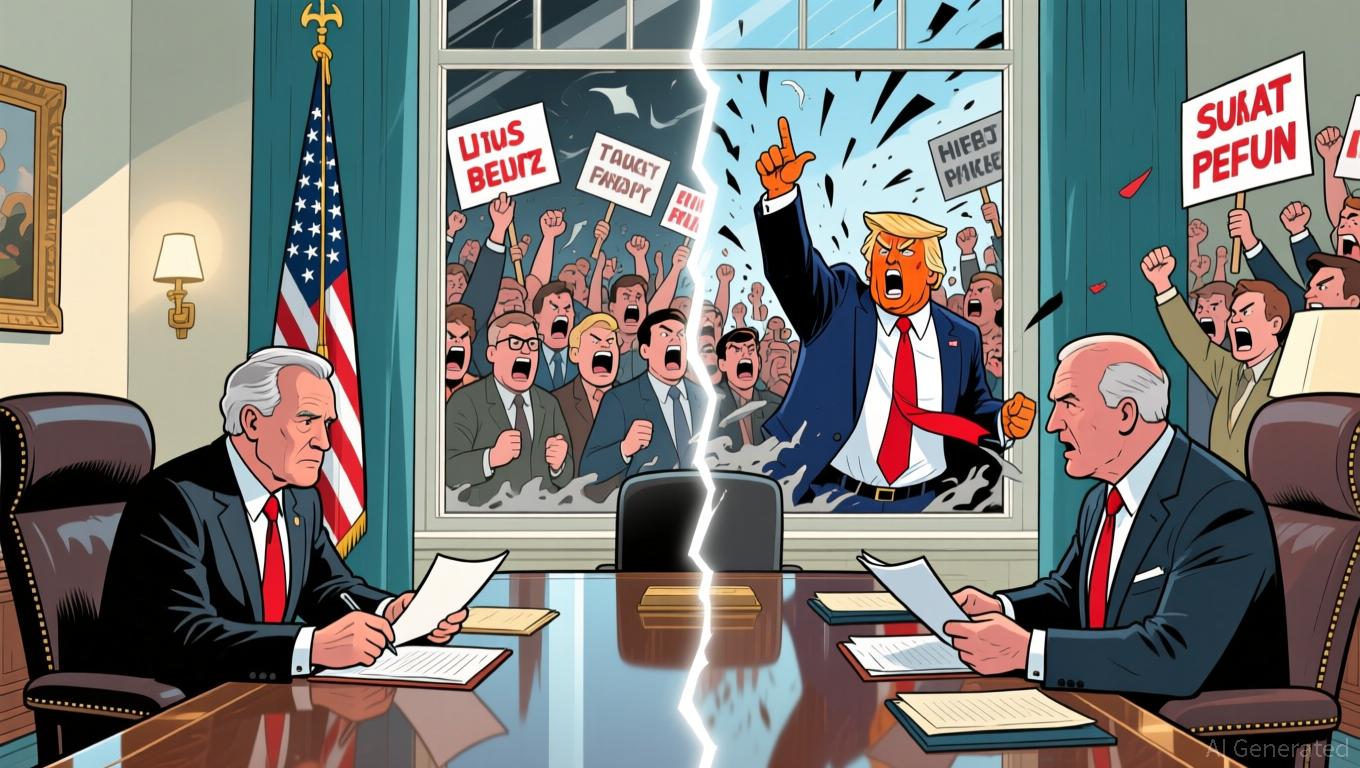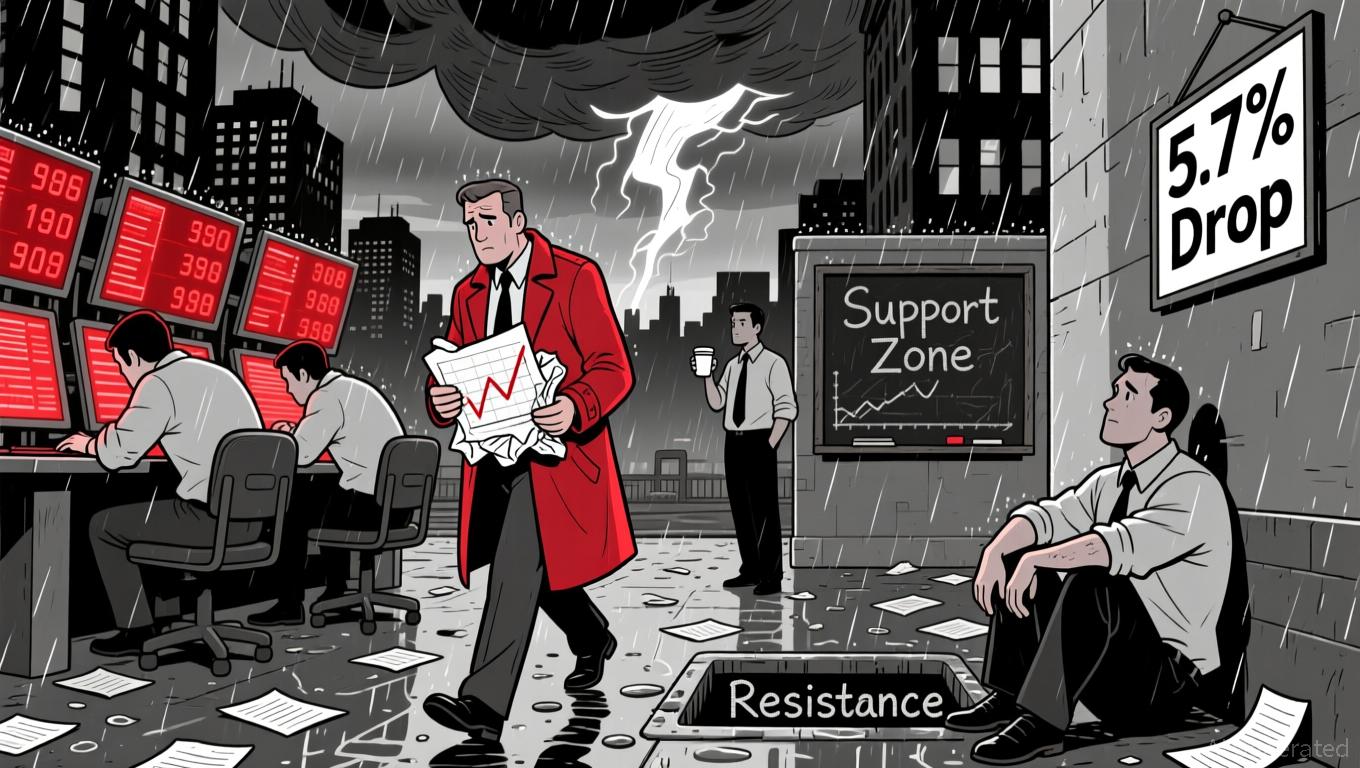Bitcoin News Update: CFTC's Broader Role in Crypto Regulation Ignites Discussion on Clearer Rules
- U.S. lawmakers propose expanding CFTC's crypto oversight via a bill reclassifying spot trading, diverging from SEC's enforcement approach. - Harvard University invests $443M in BlackRock's IBIT ETF, reflecting institutional confidence in crypto as a legitimate asset class. - DeFi projects like Mutuum Finance raise $18.7M in presales, leveraging regulatory momentum and transparent on-chain credit systems. - RockToken's infrastructure-backed crypto contracts attract long-term investors with structured yiel
The regulatory environment for cryptocurrencies in the United States is experiencing a significant transformation as legislators and industry leaders push for the Commodity Futures Trading Commission (CFTC) to take on a more expansive role in overseeing digital assets. This shift is exemplified by a new crypto market structure bill put forward by Senators John Boozman and Cory Booker, which aims to place spot digital commodity trading under the CFTC’s authority, moving away from the Securities and Exchange Commission’s (SEC) current enforcement-centric strategy.

There is also a notable rise in institutional interest in cryptocurrencies, with major entities such as Harvard University’s $55 billion endowment making significant investments. The endowment recently revealed a $443 million holding in BlackRock’s
RockToken, a New Zealand-based platform specializing in infrastructure-backed crypto investment contracts, is also attracting attention from long-term investors. The company offers a range of plans—from the entry-level “Genesis Pass” to the premium “Whale Reserve” contracts—enabling users to earn yields on Bitcoin,
Market trends are pointing toward cautious optimism. The conclusion of a 43-day U.S. government shutdown in November 2025 brought temporary stability to crypto markets, with Bitcoin recovering above $102,000. Experts attribute this rebound to renewed regulatory clarity as both the SEC and CFTC resumed their activities. Blockchain data also shows that long-term investors are accumulating assets, with over $1.3 billion in Ethereum acquired by large holders, indicating sustained confidence in crypto despite short-term price swings
This regulatory evolution is not without its hurdles. Some critics caution that overlapping responsibilities between the SEC and CFTC could lead to regulatory confusion, though advocates believe the proposed legislation will create a more streamlined oversight process. Bernstein analysts, however, maintain that the U.S. is well-placed to emerge as a global leader in crypto, citing its robust infrastructure and flexible regulatory approach. Together with increased institutional involvement and DeFi advancements, these factors could reshape the role of crypto in the international financial system
Disclaimer: The content of this article solely reflects the author's opinion and does not represent the platform in any capacity. This article is not intended to serve as a reference for making investment decisions.
You may also like
Trump’s Federal Reserve Shakeup Raises Concerns Over Stagflation and Divides Within GOP
- Trump announced his Fed chair pick but withheld the name, criticizing resistance to removing Powell before his 2026 term ends. - Shortlisted candidates include Waller, Bowman, and Rieder, with Trump hinting at a "standard" choice amid political tensions. - The dispute with Rep. Greene over Epstein files highlights GOP fractures, as Trump accused her of betraying party loyalty. - Critics warn politicizing the Fed risks stagflation, while the Epstein files debate underscores transparency vs. loyalty tensio

Nebraska and Wyoming: The Competition for Leadership in Crypto Banking Intensifies
- Nebraska grants first digital asset bank charter to Telcoin, sparking territorial dispute with Wyoming, a crypto banking pioneer since 2017. - 43-day government shutdown disrupted 680,000 Maryland SNAP recipients and caused 5M travel disruptions due to air traffic controller shortages. - Trump's $82M bond purchases and military strikes on drug-smuggling vessels face conflict-of-interest concerns and international backlash. - Fed credibility questioned after ex-governor Adriana Kugler resigns over illegal

YFI Drops 5.76% Over the Past Week as Overall Market Shows Weakness
- YFI fell 5.76% in 7 days and 44% annually, reflecting broader market weakness and risk-off sentiment. - Analysts link declines to macroeconomic uncertainty, profit-taking, and shifting investor psychology despite no direct catalysts. - Mixed sector updates (Eltek, iQIYI , Zymeworks) highlight varied asset-class responses to current economic conditions. - YFI remains a key digital asset indicator, with stabilization signals closely monitored amid ongoing downward pressure.

Bitcoin’s Abrupt Decline: Should Investors See This as a Chance to Buy or a Cautionary Signal?
- U.S. regulatory changes (GENIUS Act) shifted focus to stablecoins, boosting altcoins while Bitcoin lagged with a 6% price rise. - Institutional investors withdrew $2.9B from crypto ETFs in Q3 2025, exacerbating Bitcoin's decline below $90,000 amid high interest rates. - On-chain data shows extreme fear (index at 10) and whale activity, suggesting a mid-cycle correction rather than a prolonged bear market. - Macroeconomic factors, including AI-driven capital shifts and high yields on traditional assets, f